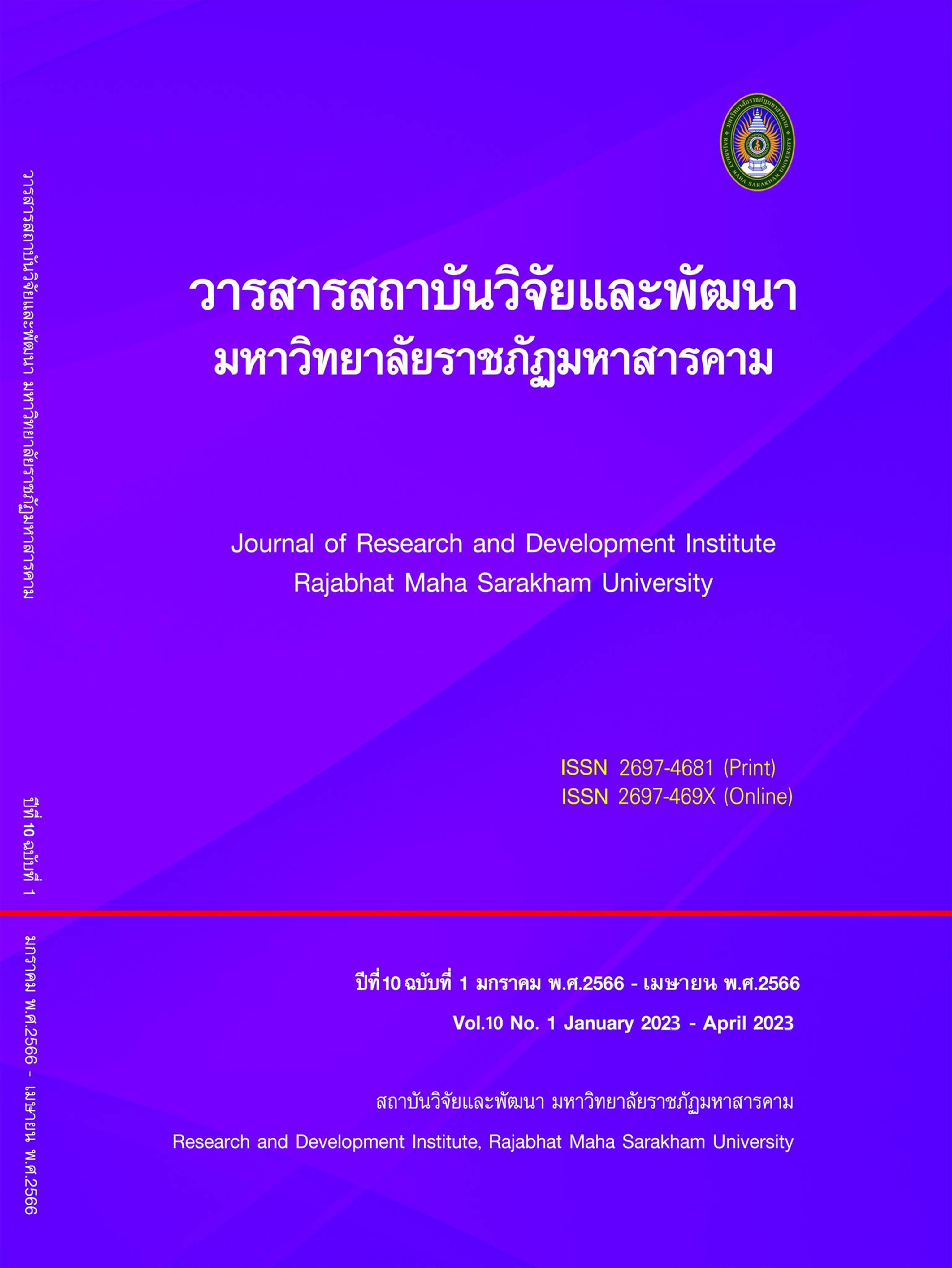The Development of Instructional Model in English for Industrial Trades by Using Task-Based Learning and Group Investigation to Enhance English Competency of Vocational Certificate Students in Kamphaeng Phet Technical College
Keywords:
Instructional Model, English for Industrial Trades, Task-Based Learning, Group InvestigationAbstract
The present study aimed 1) to investigate the current situations, desirable conditions and needs of instructional model development, 2) to develop the instructional model in English for industrial trades by using Task-Based Learning and Group Investigation to enhance English competency of vocational certificate students in Kamphaeng Phet technical college, 3) to evaluate the results of the implementation the instructional model in English for industrial trades by using Task-Based Learning and Group Investigation to enhance English competency consisted of listening skill, reading skill, writing skill and speaking skill to achieve the criteria of average score was 80 percent and students who achieved the criteria were up to 80 percent, and investigate the student’s satisfaction toward the instructional model. It was the research and development (R&D) divided into 4 phases; phase 1 was the investigation the currents situations, desirable conditions and needs, the informants consisted of 4 college administrators, 12 teachers, 4 preventatives of the establishment and 10 vocational certificate students who were not the sample. Phase 2 was development the instructional model with 5 experts who evaluate the designed instructional model. Phase 3 was the implementation the instructional model; the participants were 31 of vocational certificate students majoring in Electrical. Phase 4 was the evaluation of the instructional model; the participants were 31 of vocational certificate students majoring in Electrical who were selected by purposive sampling. The instruments used were the questionnaire of the currents situation, desirable situation and needs of instructional model development, evaluation form of propriety and feasibility of the instructional model, listening, reading, writing and speaking skill test and satisfaction questionnaire. The statistics used were mean, percentage and standard deviation and PNImodified
The results were shown as follows;
- The results of investigating the current situations, desirable conditions and needs of instructional model development revealed that overall of the current situations rated in more level, when considering into each element pointed out that the highest mean was theory and background while the lowest mean was teaching pedagogy, the overall of desirable conditions rated in the most level, when considering into each element pointed out that all element rated in the most level as well, moreover the priority needs revealed as follows; 1) teaching pedagogy, 2) teaching and learning materials,3) evaluation and assessment, 4) indicators, 5) theory and background, 6) objectives, 7) course description and 8) competency
- The results of the instructional model evaluation revealed that the developed instructional model overall rated the suitability in more level (= 4.37 S.D. = 0.23), when considered into each aspect shown that all aspects rated in more level as well.
3. The results of evaluation the instructional model implementation yielded that overall students gained mean scores of 4 skills which more than 80 percent and students achieved the criteria more than 80 percent which higher than the proposed criteria and the results of students’ satisfaction pointed out that students satisfied toward the instructional model overall rated in more level ( = 4.42, S. D. = 0.35).
References
Chaiyaraj, S. (2016). The development of a teaching model to increase the achievement in English reading by using task-based supplementary activities. Thesis. M.A. Bangkok : Silpakorn University.
Iswardati, A. (2016). The Implementation of Group Investigation to Improve the Students’ Speaking Skill. Journal of Education Dinamika Ilmu, Vol. 16 No.2, 245.
Kamphaeng Phet Technical College. (2020). Self-assessment report. (Self-Assessment Report : SAR). Kamphaeng Phet : Kamphaeng Phet Technical College.
Nahavandi, N. and Mukundan, J. (2013). Task-based Cycle in Listening Classes. International Journal of Applied Linguistics & English Literature, Vol. 2 No.2, 30.
Office of the Vocational Education Commission. (2017). Vocational Education Development Plan 2017-2036. Office of the Vocational Education Commission. Bangkok: Office of the Vocational Education Commission.
Office of the Vocational Education Commission. (2019). Vocational Certificate Program, B.E. 2562, Core competency subject category. Bangkok : Agricultural Cooperative Community Printing of Thailand Ltd.
Thappan, P. (2017). The development of English reading comprehension exercises by using task-based learning activities For Mathayomsuksa 6 students. Bangkok : Silpakorn University.
Willis, J. (1998). A Framework for Task-Based Learning. Harlow, Essex : Longman.
Downloads
Published
How to Cite
Issue
Section
License
Copyright (c) 2023 จุฑารัตน์ เนวะมาตย์

This work is licensed under a Creative Commons Attribution-NonCommercial-NoDerivatives 4.0 International License.
Articles that are published are copyrighted by the authors of the articles







